Coronavirus: Restrictions 'inevitable' in north west
- Published
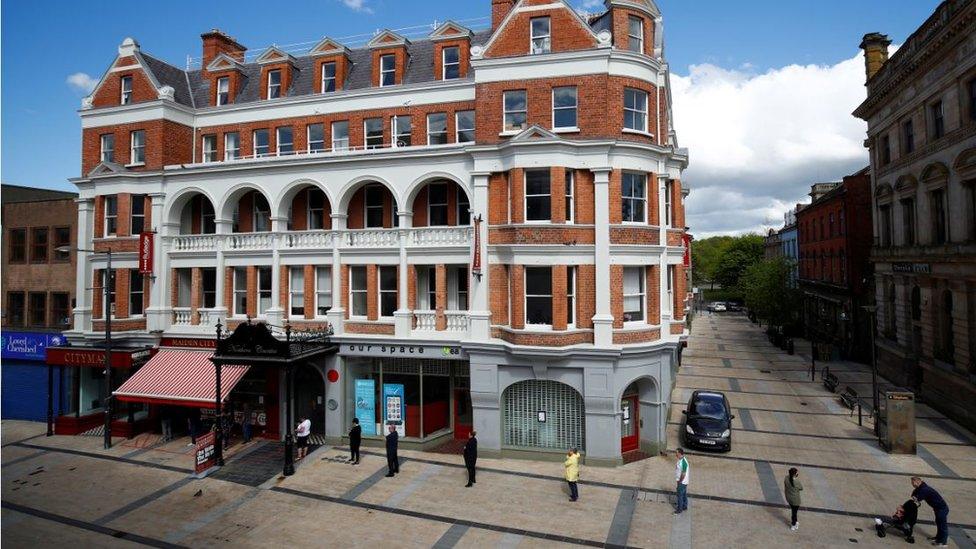
Derry GP Dr Nicola Duffy expects the number of Covid-19 patients needing hospital treatment will rise in the weeks ahead
Additional restrictions are "inevitable" in the Derry and Strabane council area to tackle the recent rise in Covid-19 cases, the health minister has said.
Derry and Strabane had an infection rate of 323 per 100,000 in the last seven days.
That is among the UK's highest rates.
A GP has warned the surge in cases may be down to a "rebellious approach" to public health guidance.
Health Minister Robin Swann said he did not want to pre-empt anything ahead of Thursday's executive meeting, but warned that action had to be taken.
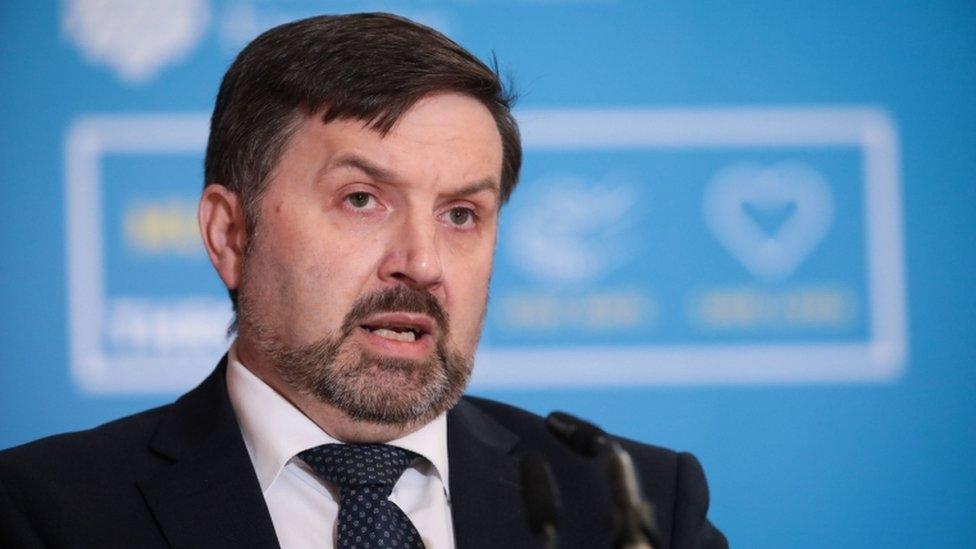
The health minister said a 'circuit breaker' over the Halloween holidays could be an option
There have been 1,030 confirmed cases in the Derry and Strabane Council area - 487 diagnosed in the past seven days.
"It's the area where we're seeing the largest increase in cases - it's also where we're seeing the largest number of cases in those under 40," he said.
"The concern we have for that is that then leads into the elderly population - 66% of cases in the area are in those under 40 and it's only a matter of time before that translates to those over 60 who are vulnerable.
"That's why we bring in measures now to reduce the ability of community transmission."
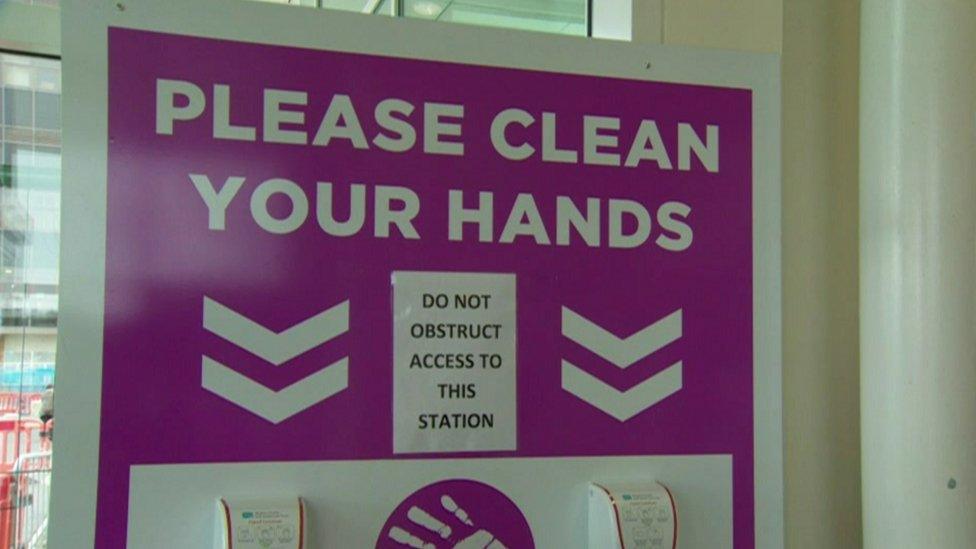
A GP has warned a rise in hospital admissions is likely
Meanwhile, GP Dr Nicola Duffy has warned a "rebellious approach" to guidance may be partly to blame for the spike in cases.
"We are struggling to get the basic information across to people at the moment," she said.
"That includes information about handwashing and mask wearing."
Dr Duffy told the BBC: "There seems to be a narrative almost like a rebellious approach to government guidance."
She said a rise in hospitalisations and of people "becoming extremely unwell" should be expected in the days ahead.
That can happen with some patients at "around day seven to day 10" following a positive test, Dr Duffy said.
"In terms of our behaviours, what we do now is going to impact what happens in the next two weeks," she added.
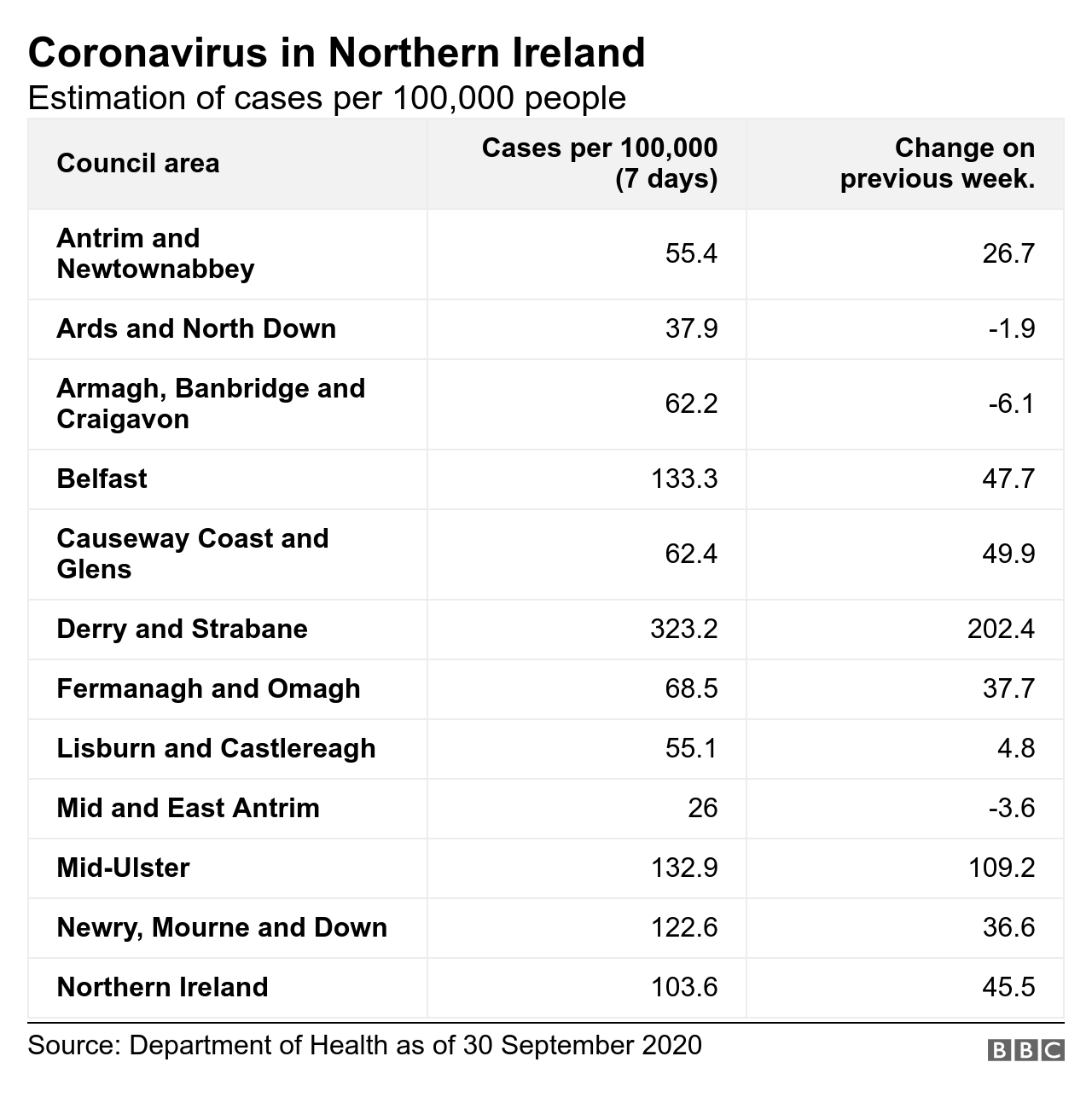

"We have to go back to basics and what we do know," Dr Duffy said.
She added: "The virus doesn't move, it is really very simple, we do. If you can minimise your movement, wash your hands and wear a mask, it will go a long way."
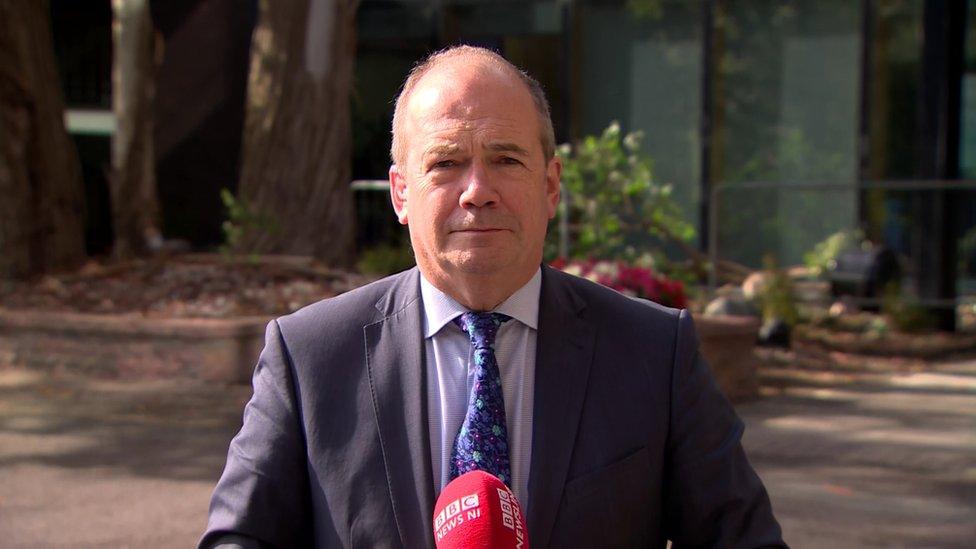
Dr Michael McBride said social interactions were causing the surge in cases
On Tuesday, NI's Chief Medical Officer Dr Michael McBride said the rise in Covid-19 cases in the north west was "quite concerning".
He said "soft intelligence from a variety of sources" suggested social interactions are behind the spike.
"There have been some clusters associated with workplace environments but that has not been the major contributor here. It is basically the interaction between people around organised social events and interactions, some of those in households," he said.
Also on Tuesday Dr Tom Black, the chair of the British Medical Association (BMA) in NI, warned that complacency is driving the north west spike.
He urged the public to reconnect with the public health guidance.
"I am fairly confident that this community, who did it very well first time around, will do it again".
- Published29 September 2020
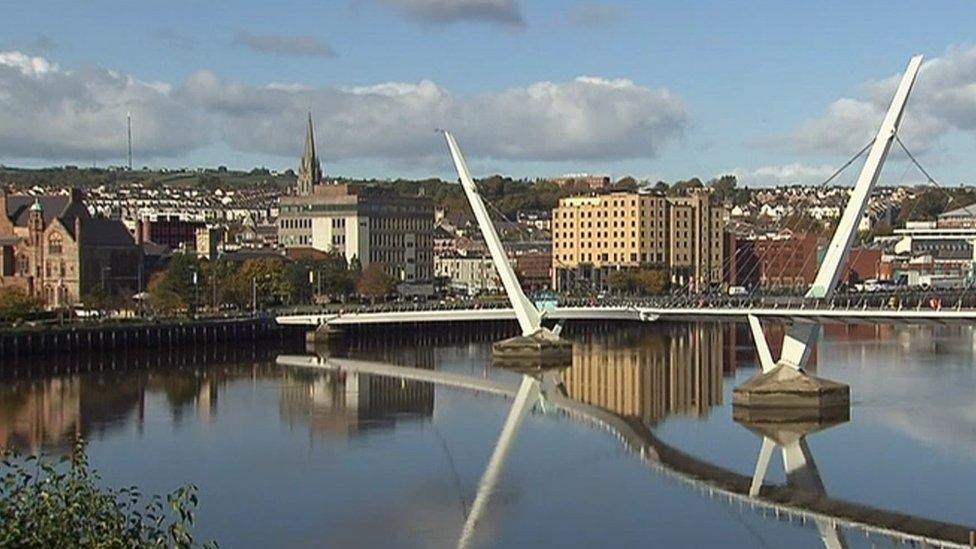
- Published28 September 2020
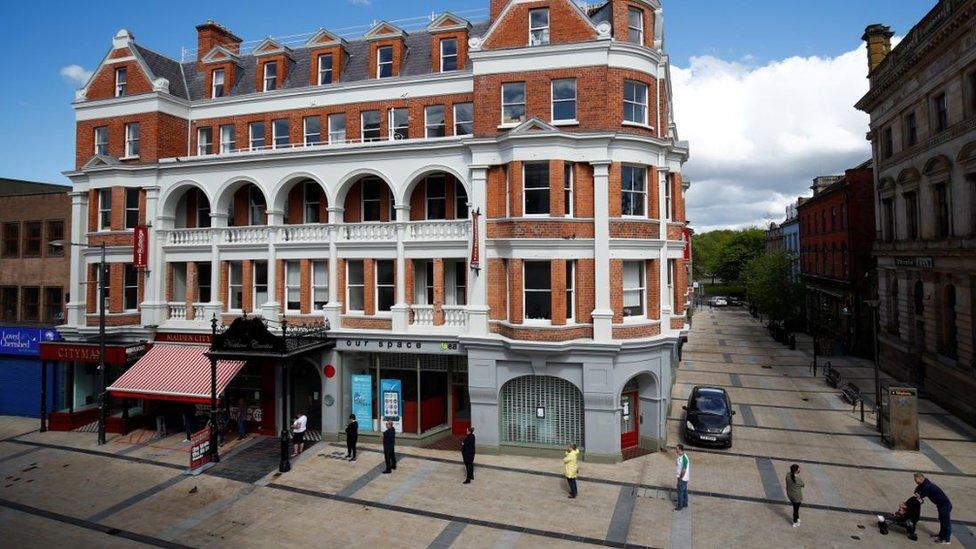
- Published24 September 2020
